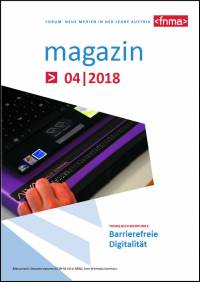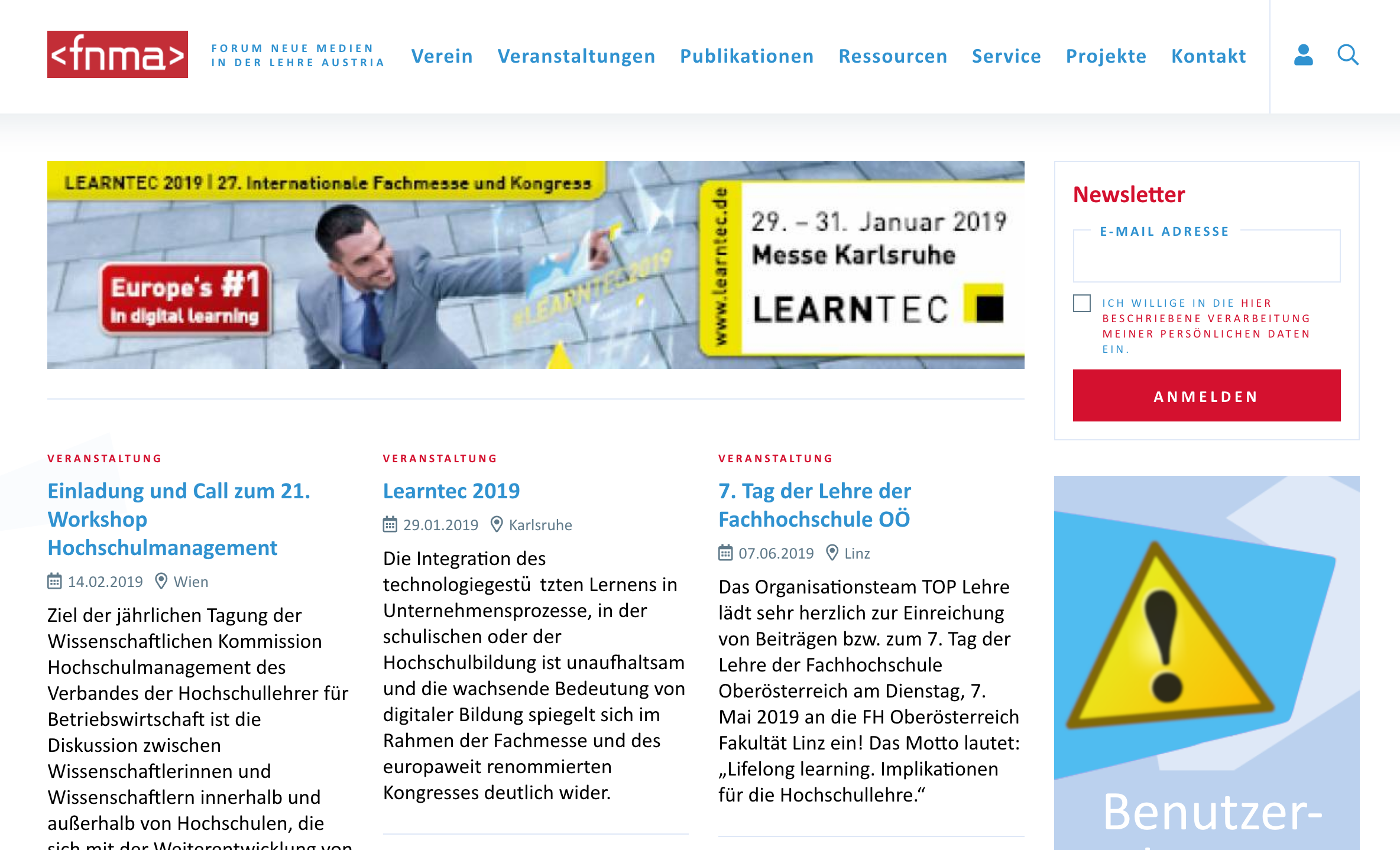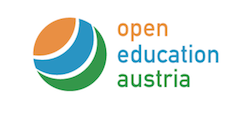Es freut uns den neuen Trailer zu iMooX.at präsentieren zu dürfen – viel Spaß beim Ansehen und noch mehr beim Lernen mit den MOOCs 🙂 .
[publication] Open Educational Resources in Austria
As part of the book Current State of Open Educational Resources in the “Belt and Road” Countries we did a chapter about the current state in Austria.
Abstract:
In Austria, located in the center of Europe, when compared earlier in relation to other German-speaking countries in Europe, individuals and groups started to develop and work on the idea of freely available and usable learning content on the Internet. A first Austrian milestone was the coordination of an international conference on open educational content in 2007 as the final activity of the first European project that was focused on OER (olcos.org). Within the contribution an overview of current state and developments of OER activities in Austria is given, also describing its infrastructure, policy, existing resources, curriculum and teaching methodologies, outcome, stakeholders and impact for education. The chapter gives a comprehensive overview of all OER activities in Austria and outlines the benefits for the educational system as well. It can be summarized that the Austrian way seems to be successful even though the steps forward are often small.
[Chapter @ Journal’s Homepage]
[Chapter @ ResearchGate]
Reference: Schön S., Ebner M. (2020) Open Educational Resources in Austria. In: Huang R., Liu D., Tlili A., Gao Y., Koper R. (eds) Current State of Open Educational Resources in the “Belt and Road” Countries. Lecture Notes in Educational Technology. pp 17-33. Springer, Singapore
[magazin] Barrierefreie Digitalität #fnma #elearning
 Im neuen Magazin des Vereins Forum neue Medien in der Lehre Austria ist der Schwerpunkt einem sehr wichtigen Thema gewidmet: „Barrierefreie Digitalität„. Vielen Dank an alle Autorinnen und Autoren die hierzu einen Beitrag geleistet haben. Auf alle Fälle lesenswert für alle die in unserem Themenfeld arbeiten.
Im neuen Magazin des Vereins Forum neue Medien in der Lehre Austria ist der Schwerpunkt einem sehr wichtigen Thema gewidmet: „Barrierefreie Digitalität„. Vielen Dank an alle Autorinnen und Autoren die hierzu einen Beitrag geleistet haben. Auf alle Fälle lesenswert für alle die in unserem Themenfeld arbeiten.
FNMA – Neues Portal online #fnma
Es freut uns, dass es nach einem Jahr Arbeitszeit gelungen ist, das Portal des Vereins Forum Neue Medien in der Lehre Austria, kurz fnma, in neuem Glanz erstrahlen zu lassen. Darüber hinaus wurde auch das eScience-Portal erfolgreich in die neue Website intergriert um so noch mehr Service für unsere Mitglieder und alle am Thema interessierten Personen bieten zu können.
Viel Spaß also mit dem neuen Portal 🙂

[conference] Freie Bildungsmaterialien in der Hochschullehre #OER #tugraz
Es freut mich, dass ich zu einer OER-Konferenz in Karlsruhe mit dem Titel „OER-KA: Freie Bildungsmaterialien in der Hochschullehre“ eingeladen worden bin. Ich möchte dort die letzten Entwicklungen aus Österreich überblicksmäßig darstellen, insbesondere die letzten Arbeiten auf nationalem Level vorstellen.
Ich freue mich auf viele TeilnehmerInnen und spannende Diskussionen 🙂 .
OER-Booklet #OER #OpenEducation
 Im Rahmen des Open Education Austria Projektes haben wir auch ein OER-Booklet erstellt mit der Idee, dass man schnell etwas Übersichtliches in der Hand hat. Das Prinzip ist simpel – man druckt sich einfach das A4-Blatt aus und dann muss man es richtig falten 🙂
Im Rahmen des Open Education Austria Projektes haben wir auch ein OER-Booklet erstellt mit der Idee, dass man schnell etwas Übersichtliches in der Hand hat. Das Prinzip ist simpel – man druckt sich einfach das A4-Blatt aus und dann muss man es richtig falten 🙂
Da ich selbst nicht gerade ein Falttalent bin, haben wir uns gedacht machen wir auch noch ein Video davon, damit es auch sicher klappt. Viel Spaß damit und wir freuen uns wenn es weiterverbreitet wird 🙂
Klicken Sie auf den unteren Button, um den Inhalt von www.slideshare.net zu laden.
[publication] Recommendations for OER Integration in Austrian Higher Education #fnma #OER #tugraz
Together with my colleagues of the austrian wide OER-working group we published our findings about „Recommendations for OER Integration in Austrian Higher Education“ at this year EADTU 2016 conference.
Abstract:
Open Educational Resources (OER) are considered an important instrument to increase access and to facilitate the reuse of learning content. Educational institutions, especially those in Higher Education, play a crucial role in the production of OER, since they are the main producers of learning materials. To foster this production, a national strategy or at a least a national commitment to OER is necessary. Moreover, due to the very strict copyright law in Austria, this achievement is of high importance and necessity. In this publication, we will introduce recommendations for the integration of OER in all Higher Education institutions in Austria; these were developed by a national workgroup consisting of different stakeholders (government, library, funder, Higher Education and special interest groups). The overall aim is to achieve sustainability for the educational sector, especially with regard to the usage of learning materials by different lecturers as well as institutions. The cooperation among various stakeholders on different levels needs to be in the centre of all further efforts, which should be based upon six explicit requirements:
- Mandatory commitment to OER
- Establishment of a nationwide information platform for exchange and cooperation
- Establishment of nationwide educational programmes for different stakeholders
- Establishment of national OER badges
- Targeted financial and structural promotion of OER
- Establishment of OER strategies within each institution and as a comprehensive approach
Each requirement will be described in more detail and a roadmap will illustrate how OER can be successfully integrated at Higher Education institutions in the next ten years.
Reference: Ebner, M., Kopp, M., Freisleben-Deutscher, C., Gröblinger, O., Rieck, K., Schön, S., Seitz, P, Seissl, M., Ofner, S., Zimmermann, C., Zwiauer, C. (2016) Recommendations for OER Integration in Austrian Higher Education. In: Conference Proceedings: The Online, Open and Flexible Higher Education Conference, EADTU 2016, pp. 34-44
[publication] Empfehlungen für die Integration von Open Educational Resources an Hochschulen in Österreich #fnma #OER
Nach einem längeren Arbeitsprozess im Rahmen der Arbeitsgruppe OER des Forums Neue Medien in der Lehre Austria ist das Empfehlungsschreiben nun veröffentlicht worden. Damit wollen wir die nachhaltige Integration von freien Bildungsressourcen an österreichischen Hochschulen forcieren und auch sicherstellen.
Zusammenfassung:
Dieses Dokument dient dazu, einerseits einen kurzen Überblick über freie Bildungsressourcen (Open Educational Resources, kurz: OER) generell und speziell in Österreich zu geben, sowie andererseits Empfehlungen für die österreichische Hochschullandschaft in Bezug auf eine nachhaltige Verankerung von OER in der Bildungslandschaft auszusprechen. Insbesondere wird betont, dass dafür ein Zusammenwirken aller Beteiligten – von der Politik bis hin zu den Lehrenden – notwendig ist.
[Empfehlungsschreiben bei ResearchGate]
[Empfehlungsschreiben bei fnm-austria]
Referenz: Ebner, M., Freisleben-Teutscher, C., Gröblinger, O., Kopp, M., Rieck, K., Schön, S., Seitz, P., Seissl, M., Ofner, S. & Zwiauer, C. (2016) Empfehlungen für die Integration von Open Educational Resources an Hochschulen in Österreich. Forum Neue Medien in der Lehre Austria, 22 S.
Weiters gibt es auch eine Kurzpräsentation des Arbeitspapiers schon online:
Klicken Sie auf den unteren Button, um den Inhalt von www.slideshare.net zu laden.
[publication] Introducing MOOCs to Middle European Universities – is it worth it to accept the challenge?
Our contribution to the Special Issue on MOOCs for the International Journal for Innovation and Quality in Learning is titled „Introducing MOOCs to Middle European Universities – is it worth it to accept the challenge?„.
Abstract:
The paper deals with necessary requirements to implement MOOCs at European universities, by the example of Austria. As the respective general conditions and business environments are obviously different from the university system in the United States the analysis of advantages and obstacles of offering MOOCs is done from a local point of view including lecturers’ and students’ perspectives as well as necessary preconditions that have to be established by the universities and the government. Thereby, challenges in the fields of content creation, the supply of MOOCs, the assessment of knowledge and the development of business models are pointed out and discussed.
Reference: Kopp, M., Ebner, M., Dorfer-Novak, A. (2014) Introducing MOOCs to Middle European Universities – is it worth it to accept the challenge?, International Journal for Innovation and Quality in Learning, Vol. 2/3, pp. 46-52
[Link to full article (open access)]
[presentation] LEARNING WITH MOBILE DEVICES – Perceptions of Students and Teachers in Lower Secondary Schools in Austria
Our second presentation at this year ED-Media Conference in Tampere, Finland is about „Learning with mobile devices“ – attached the slides:
Klicken Sie auf den unteren Button, um den Inhalt von www.slideshare.net zu laden.


